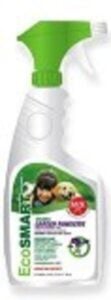6 Natural Weed Control Solutions For Your Lawn & Vegetable Garden

At our recent Organic Advisory Board meeting at the Texas Department of Agriculture, I gave a review of the current organic herbicide options. Here’s a synopsis of that information. There are no perfect answers yet, but research is continuing to be done on this issue.
| 1. Corn Gluten Meal It is a natural weed and feed fertilizer. It should be broadcast to prevent grassburs, crabgrass, and other annual weeds that germinate from seed. The key is to broadcast the material before the weed seed germinate. Possibly its best use is around root crops and bulb plants like onions. CGM on the bare soil around the young plants feeds the plants well to help develop big onions while keeping the competing weeds at bay. |
| 2. Crabgrass Killer Garden Weasel Crabgrass Killer is a natural weed killer used to kill crabgrass, chickweed, and other similar weeds. Cinnamon bark is the active ingredient. This product is especially effective on clovers of all kinds. It’s applied dry to moistened foliage and kills quickly without hurting most turfgrasses. |
| 3. Fatty Acid Products There are several of these fancy, strong soaps on the market including EcoSMART, Monterrey Herbicidal, Scythe, and Racer. They are non-selective herbicides that usually have to be sprayed more than once. |
| 4. Flame Weeding Red Dragon is the specific brand I have tried and it works on many tough to control weeds. There are small lightweight models for the homeowner and large commercial selections as well. They run off propane gas. Of course, be careful using any fire producing device. |
| 5. Molasses Dry or liquid molasses can be used to kill off hard to control weeds – even nutsedge. The dry product is used at 20 lbs. per 1000 sq. ft. as a fertilizer and fire ant repellant. Doubling that rate causes a herbicidal effect on certain weeds. Liquid molasses used at about a cup per gallon of water kills nutsedge. It usually takes 2 or 3 applications and the nutsedge slowly dies away. |
| 6. Vinegar The best choice for herbicide use is 10% white vinegar made from grain alcohol. It should be used full strength. I’ve mentioned 20% in the past, but it is stronger than needed and too expensive. Vinegar Herbicide Formula: 1 gallon of 10% (100 grain) vinegar Add 1 ounce orange oil or d-limonene Add 1 tablespoon molasses (optional – some say it doesn’t help) 1 teaspoon liquid soap or other surfactant (I use Bio Wash) Do not add water Shake well before each spraying and spot spray weeds. Keep the spray off desirable plants. This spray will injure any plants it touches. This natural spray works best on warm to hot days. Vinegar sprayed on the bases of trees and other woody plants will not hurt the plant at all. This technique was first learned about by spraying the suckers and weeds growing around the bases of grapevines. Avoid all vinegar products made from glacial acetic acid. |

